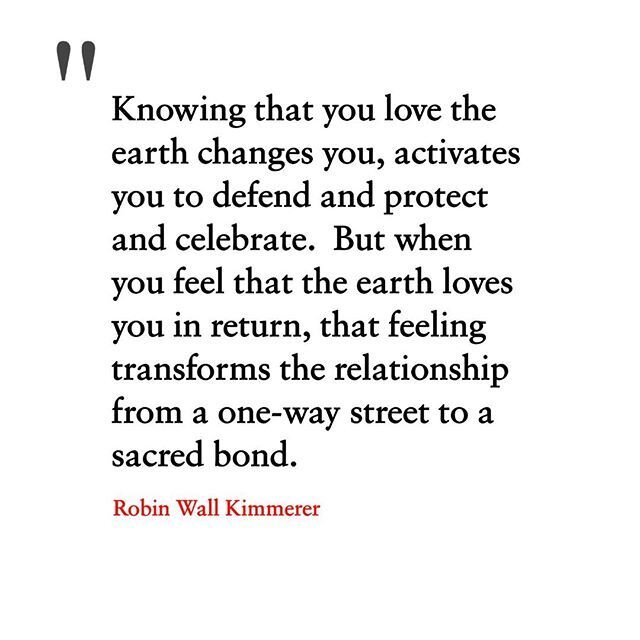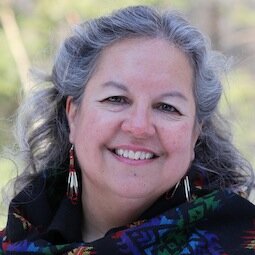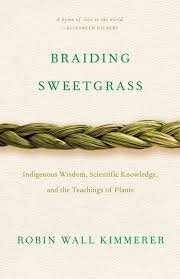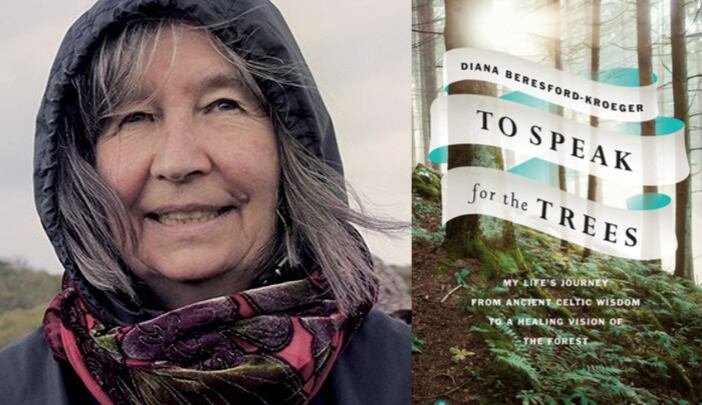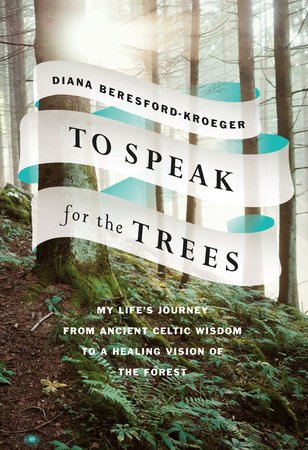3. Knowing
3. “Knowing” Can Get in the Way
We all have ideas and beliefs about ourselves, our world and what it all means. To begin, let's suspend our inclination to think we 'know'.
In school, at work, as parents, friends, partners - we are esteemed if we "know". Not knowing can get us in trouble or shame and embarrass us. We can feel stupid or excluded, confused or anxious.
Not knowing can be a freedom.
When we let go of assuming we 'already know', we are free again to ask questions and be curious. Assuming we know shuts down our willingness to listen or take in new information.
This is the most damning to ourselves. For many years I was proud to "know myself" and "know who I am". Which is great, of course, we need to know ourselves - but that process of knowing is never complete. Proclaiming "I know who I am" can stop us from learning more about ourselves or allowing us to change and develop and become anew. I know who I am right now and I'm eager to be shown new "me" stuff in the future.
Story Time: My Step-Son
This same assumption of knowing with disastrous results played out with my step son. He was very young when I met Keith and in his little "eternal now" mind he wasn't able to register a difference between the time that his parents split up and his dad moved out and the time that I came into the picture as his dad's girlfriend. In his mind they happened at the same time and I was to blame.
Keith had moved out and lived with his sister for a year before I met him. I didn't even know him when he was splitting up with his ex-wife (who is a wonderful human being and a fabulous mother.)
My step-daughter saw things more clearly. She was older and had a better hold on the passage of time and registered the two events as different times and unconnected. For the first four years of my relationship with Keith, his son thought that I was an evil step mother (thank you Disney) who broke up his family and stole his Daddy from him Mommy. He assumed he understood the situation and even though it made it worse for him and for everybody else and felt BAD, he clung to his misconception and did everything in his power to express his dislike and resistance against the evil Step Monster.
It never occurred to him early on to ask for clarification.
I knew he didn't like me but I didn't know why and I could even see him fighting his own inclination to have fond feelings for me. We would watch a movie or play a video game together or walk in the woods at night, and I could see him recognizing that he had warm feelings for me or enjoyed my company and I would watch him actively shut them down and reassert that I was the 'enemy'.
Finally, when he was 7 or 8, I don't remember how it came out - but he finally asked or stated that "Dad left Mom for you." and everyone in the room; me, Keith and his sister were like "No he didn't."
He was stunned.
We explained what happened. I wanted to know why he never asked - why didn't he at least ask his sister... who knows, but our relationship changed completely that day.
I feel sad that I lost the little years with him hating me (and I hated him too. He was a little bitch that caused conflict), but I'm very happy that things are so different now. Things were tense and bad for years because of a little boy's insistence that he "knew" what happened.
Little children don't hold a monopoly on misunderstanding. We don't stop assuming we "know" just because we grow up.
“A thought is harmless unless we believe it.”
What we “know” can create barriers
"Knowing" can make us rigid and resistance to new ideas and new ways of being and seeing. If I've learned anything on the path of Beloved Presence - it's to be prepared to learn some new ways of being because sh!t is not what we think it is.
Creator is trying to communicate with us all the time. That means the entirety of Creation is inviting us to make connection and communicate all the time - everything, in every way, in all moments, always. No exceptions.
Historically, human beings have placed very narrow limits on what we've accepted as communication in the world. It is all material and evidence-based ("scientific objective observer") foundations that are fundamentally inadequate. The Cartesian subject/object duality of the world is false. It doesn't exist. It has never existed. It's not even real.
There is no observation that can be made that doesn't include the observer. There is fundamentally no separation between object and subject. We cannot divide an indivisible whole.
Belief in Cartesian duality prevents us from the true experience of the world that exists. Instead, we experience a world that we made from an error in perception that filled our lives with separate, unconnected objects that can't ever really know one another.
Objectivity is an impossibility and holding ourselves separate from everything else is a terrible foundation to learning. It's a terrible foundation for anything. What is required is an assumption of connection and a belief that we can learn about each other - and everything - in truth because we are fundamentally whole. We are collectively, everything in existence, everywhere, an undivided whole.
This is the foundation truth of all things.
We are One Love.
Communication happens directly from mind to mind, or heart to heart (or both).
The First Peoples were taught directly by the Earth - through all their senses, including the realm of Spirit. All Plants, Animals, Dirt, Water, Wind... everything communicates, and the First Peoples all over the world learned how to listen and understand with all of their senses - including the realm of Spirit.
"Braiding Sweetgrass" by Robin Wall Kimmerer blew my mind and made me feel validated and supported in all of my natural world kinship beliefs. If you feel guided, please read/listen to her. She weaves beautiful pictures with words and fed my heart a truth that I have been waiting my whole life to see spread all over the Earth.
“Speaking for the Trees” by Diana Beresford-Kroger is a Celtic Braiding Sweetgrass. It is steeped in Celtic Animism and Irish phrases of Earth Spirit knowledge. Speaking Irish and Gaelic words awakens ancient knowledge. Her book had a profound affect on me and was a bridge to reconnecting to my Celtic Ancestors.
The Six Nations people have offered a prayer to the world in The Words Before All Else. The Haudonosaunee Thanksgiving Address; Greetings to the Natural World. It is a gratitude prayer that at it's core, embraces all of existence as equal and necessary and valued. It promotes a shift in perspective from viewing the Earth as a commodity to be consumed, to a mutual relationship of gratitude and reciprocity. Repeated over and over, we are asked to consider all the myriad ways that the Earth supports us - and we affirm, "now our Minds are One."
Because this is so. Our Minds ARE One.
This is truth and we forget the truth. We need to be reminded daily that We are of One Mind. We are of One Heart. We need to practice seeing ourselves in a world of One Mind, One Love.
The entirety of Creation is working for our best benefit at all times but we have trouble recognizing this truth. We forget and we choose to see ourselves and our kin as "bad" and "separate" and miss the point.
It's okay.
There is no coincidence and everything is worthy and valuable.
We are exactly where we need to be and even if we don't understand the connection or the meaning, there is always a connection and there is always meaning for everything that is happening in our lives. We may not see the worth or the value, but it wouldn't exist if it wasn't necessary and didn't have a purpose.
The best we can do is ask for Beloved Presence for help to understand and see the world as it is, instead of believing it to be what we perceive with our Divided Mind.
What do you know?
We equate what we think we know with what is true. What do we actually know and is it really true?
Grab your journal and get into your comfy relaxing spot.
In a quiet room with no distractions… phone on silent… sit comfortably and close your eyes.
Get into a calm, peaceful deep breathe in - deep breathe out kind of state. The Mothaitheacht State.
Think of a time in your life where you were absolutely wrong about something or someone you thought you knew.
What was it? What happened? Record the situation to the best of your ability. Include as much feeling sense as you can remember. What did you think you knew? What did it mean to “know” that?
What didn’t you know? What did it feel like to realize you didn’t know?
How did you change your perspective/belief/feelings about the situation once you realized you didn’t know?
Repeat with as many situations as you feel comfortable/inclined to dig into. Choose the ones that are yelling at you first. There are loud memories that have more emotional juice on them than others.
More Practice with “Knowing”
-
Until we meet again, focus your attention not knowing. I don’t mean anything that can endanger you, your loved ones, relationships or livelihood. In real situations, at work, at home and during leisure time, practice not knowing.
Cultivate a healthy respect for not knowing what things mean or what it is or what’s going to happen.
Let the world go on without having to comment or critique or speculate about every little thing.
Try not to comment about people or relationships or events that don’t involve you.
Cultivate a healthy not knowing about what things mean or what people mean or what this or that means.
When you do this, pay particular attention to how it feels in your body to not know.
Are you anxious? Do you feel resistance? Is your body filled with chaotic energy or do you feel deflated and tired?
You don’t need to understand what this means - it’s only necessary to be aware and acknowledge that you feel this happening when you “don’t know” and don’t engage in speculation and assumption.
-
Practice saying, “I don’t know.” When you don’t know.
How does that feel? Are you uncomfortable? Does it feel good and liberating? Does it feel oppressive?
How do people around you respond? Do loved ones, friends and co-workers react to your not knowing? How?
Record your reactions and feelings in your journal.
-
Human beings are meaning-making machines. We can be really bad at it and make things more difficult for ourselves because of the assumptions and stories we tell ourselves and others. Practice not knowing.
Unless something is spelled out to you, assume you don’t know.Unless something crawls right up your ass and bites you, assume you don’t know.
Obviously, be safe, but this practice is intended to illustrate how much of our time, energy and mind-power is taken up by being concerned about other people and other things that are none of our business.
I am going to take a moment and differentiate between having a gut intuition about someone &/or something and our human habit of talking sh!t about stuff we know sh!t about.
You know the difference. Intuition is bodily insistent and has a calm, quiet rootedness to it. Sh!t talk and minding other people’s business feels critical, judgemental and is a misdirection of our attention and energy away from ourselves and our own issues.
We all do it. It’s okay - the core point of The HSH is to become aware of it and recognize when it’s happening. We we know, we can make better, more informed decisions.

